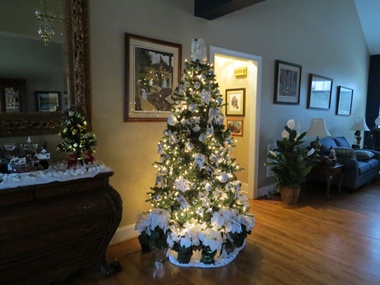
2016-12-18: Tree
I didn't take many photos in the house but this is one of three trees Debra had decorated. Unfortunately I didn't take a picture of the tree in the kitchen which was adorned with all kinds of kitchen stuff!

2016-12-19: Pigs in the City
Historic Uptown Lexington is home to the Pigs in the City project (pigs because Lexington is known for its BBQ). As you stroll down the streets and in the stores, you get to see life-size pigs painted and decorated in very unusual ways. This one, located in Lanier's Hardware, is totally covered in screws, washers, bolts and the like.

2016-12-19: Pig Choir
Beneath the tall Lexington Christmas tree I found this pig choir.
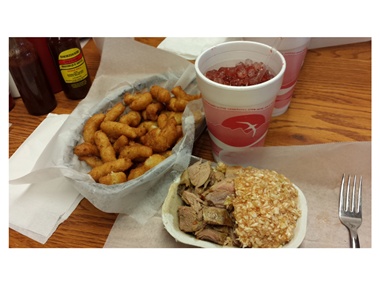
2016-12-19: Lexington BBQ
Our friend Larry had told us time and again that we hadn't had BBQ until we had Lexington BBQ. There are numerous BBQ places but this one has been in business since 1962 and attributes it's success to quality customer service and making true BBQ which means cooking only pork shoulders over a wood fire. The BBQ and slaw was yummy but totally different then anything we had ever had. It was here I was introduced to a soft drink bottled in the area called Cheerwine.
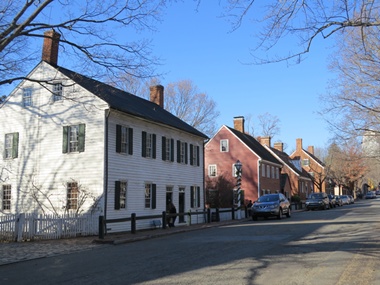
2016-12-20: Old Salem
From the beginning, Salem was known as a trades town. Its craftsmen were known for producing essential goods such as tools, ceramics, food, furniture and metals.As the settlement prospered, buildings were added to meet the needs of its citizens, including a bakery, tavern, fire house, doctor's office, shoemaker's shop, printing shop, bank and homes for merchants.
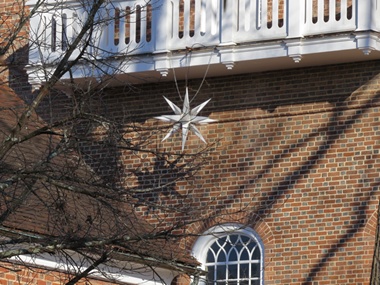
2016-12-20: Moravian Star
The influence of the Moravian Church, a Protestant denomination that first began in 1457, is evidenced by the presence of Moravian stars throughout the area. Home Moravian Church was built here in 1800.

2016-12-20: 1816 Tavern
Here we are standing under the tavern sign. The tavern was built in 1816 as an annex to the historic 1784 tavern.
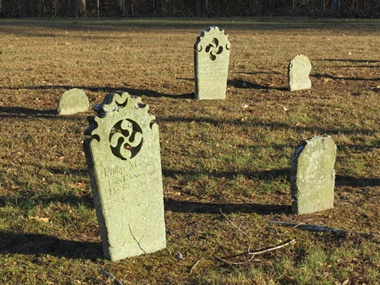
2016-12-21: Abbots Creek Cemetery
Abbots Creek Primitive Baptist Church Cemetery was established in 1756. There are about 450 gravestones here with the earliest headstone dating to 1795. The decorative headstones, made of soft soapstone, were carved and pierced by Anglo-German cabinet and furniture makers in the German folk art tradition using the same tools they used to make furniture. This type of tombstone is found at only seven churches and they are all located in this same county.
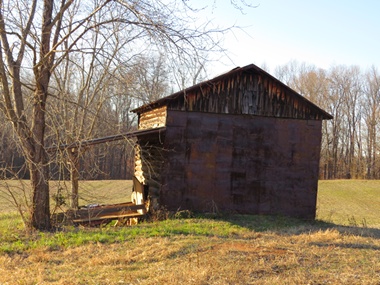
2016-12-21: Tobacco Barn
Tobacco was a huge industry in this area as evidenced by the many tobacco barns still standing in yards and fields.

2016-12-21: Korner's Folly
Korners Folly is the architectural wonder and home of artist and designer Jules Gilmer Korner. It was built in 1880 and is a 6,000 square foot, 3 1/2-story, eccentric brick dwelling with a shingled, cross-gable roof.
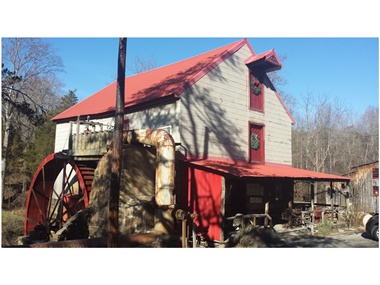
2016-12-21: Old Mill of Guilford
The Old Mill was built about 1820. The grinding process today is the same as it was 200 years ago. The electricity to run the modern machinery, which was installed to meet present health and safety rules, is generated by the waterwheel which powers a 15-kw generator. Today the mill continues to produce corn meal, grits and flour.
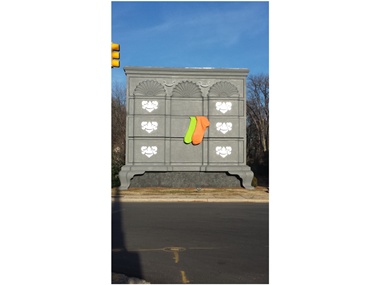
2016-12-21: High Point
Known as the Bureau of Information in 1926, this restored, beautiful 19th -century dresser is the Worlds Largest Chest of Drawers. Standing 32-feet high, it was built to call attention to High Point as the Furniture Capital of the World. Unfortunately, now the furniture showrooms are only used twice a year whereas when furniture was manufactured here, they were open year round.
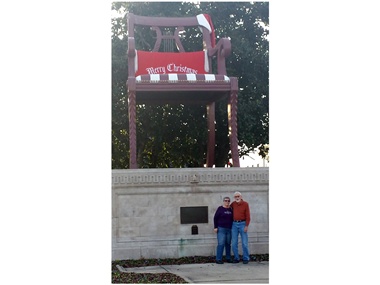
2016-12-21: Thomasville
Built of concrete and steel in 1948 and set on a granite pedestal in 1951, the World's Largest Duncan Phyfe Armchair Chair is perhaps the sturdiest of America's giant chairs, and without a doubt the prettiest. It stands as a symbol of Thomasville's furniture heritage. Most local manufacturers have moved their production facilities to Asia and Mexico as a way to reduce costs and remain competitive in a global market.